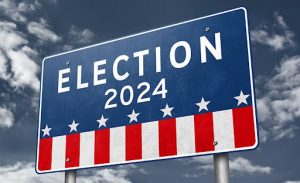Twelve Republican lawmakers have urged the Biden administration to not support a proposal by India and South Africa before the World Trade Organisation to temporarily waive some Trade-Related Aspects of Intellectual Property Rights (TRIPS) rules amid the coronavirus pandemic.
If the US gives up intellectual property rights, it will harm innovation and production, and result in fewer people getting vaccinated, the 12 influential Congressmen said in a letter to US Trade Representative Katherine Tai on Tuesday.
The letter is in response to the proposal in this regard by 60 developing countries, led by India and South Africa.
Also Read | US ban on travellers from India comes into effect
“The United States should continue to oppose the request by India, South Africa, and other nations to waive certain portions of the Agreement on Trade-Related Aspects of Intellectual Property Rights (TRIPS) for all members of the World Trade Organisation (WTO),” the letter said.
Spearheaded by Congressmen Jim Jordan and Darrell Issa, the lawmakers said the requested waiver is extraordinarily broad and unnecessary to accomplish the goal of giving as many people as possible access to vaccines and treatment for COVID-19.
They claimed that Prime Minister Narendra Modi pressed US President Joe Biden to support the waiver during a phone call in early May.
Among other signatories to the letter are Steve Chabot, Louie Gohmert, Matt Gaetz, Mike Johnson, Tom Tiffany, Thomas Massie, Dan Bishop, Michelle Fischbach, Scott Fitzgerald and Cliff Bentz.
Also Read | Crossing borders: India’s COVID strain emerges in US and 18 other countries
“The justification for the waiver rests on an incorrect assumption that IP rights are a significant bottleneck to the widespread availability of COVID-19 vaccines and treatments,” the letter said.
“The waiver’s sponsors have presented no convincing evidence to support this assertion. Instead, the sponsors mainly just point out that relevant IP rights exist and speculate that those rights could serve as a barrier to access to COVID-19 vaccines and treatments – not that IP rights have actually blocked or significantly hindered their availability,” it added.
If anything, the examples of IP ‘disputes’ cited by the waiver sponsors generally demonstrate that IP rights have not prevented the involved parties from supplying vaccines and other medicines, the letter said.
Respect for intellectual property rights has been a cornerstone of the US trade policy for decades and should not be set aside lightly, the Republican Congressmen said.
“Although some flexibility may be warranted in emergency situations, the waiver of TRIPS IP protections requested by India, South Africa, and other countries would do little to improve public health during this critical period in the COVID-19 pandemic. The scope of the requested waiver is overbroad and unjustified in light of the economic harm it would cause and the negligible benefits it would provide,” they said in the letter.
“Existing aspects of TRIPS and global public health initiatives, along with the existing actions of key IP rights holders and innovators, make the waiver unnecessary. While considerable work can still be done to improve access to COVID-19 medicines and other innovations, that work can be done without the drastic step of suspending IP rights, and significant progress has already been made to address the real obstacles hampering the global COVID-19 response,” they said.
The lawmakers argued that relevant intellectual property rights have been successfully licensed to expand access to COVID-19 innovations while maintaining IP protections. For example, the Serum Institute of India has secured licenses to produce multiple vaccines, including Astrazeneca and Novavax vaccines.
South Africa’s Aspen Pharmacare has secured a license to produce the Johnson & Johnson vaccine.
Several vaccine makers have licensed direct competitors to increase vaccine manufacturing capacity.
Moderna has announced that it would not seek to enforce any of its COVID-related patents against other vaccine makers for the rest of the pandemic and has pledged to license its COVID-19 vaccine patents.
Gilead has licensed nine generic pharmaceutical manufacturers (including in India) to produce its COVID-19 therapeutic drug remdesivir for 127 countries, most of which are developing nations.
Moreover, TRIPS already allows countries to impose compulsory licenses to access vital IP rights, and no country has availed itself of that capability to date for COVID-19 vaccines or treatments, the lawmakers noted.
The proposed waiver is not limited to patents on vaccines or treatments for COVID-19 – the waiver would also gut protections for copyrights, industrial designs (e.g., textile patterns or other ornamental designs), and trade secrets. The waiver’s supporters have only offered vague, unsubstantiated explanations for how waiving IP protections for copyrights or industrial designs would lead to improved vaccine or therapeutics availability, they said.
It is also unclear how a waiver of TRIPS obligations would provide more access to trade secrets and proprietary technologies, which are confidential by definition and typically closely guarded, they said.
“Gifting away our technological leadership and competitive advantage at a time when the US economy remains vulnerable would be irresponsible and send the wrong message to millions of American taxpayers. The damage would extend beyond even the considerable value of COVID-19 vaccines and medicines, also endangering the far greater value of the jobs and economic growth promised by these IP rights and the advanced technologies they represent,” the Republican Congressmen said in the letter.





